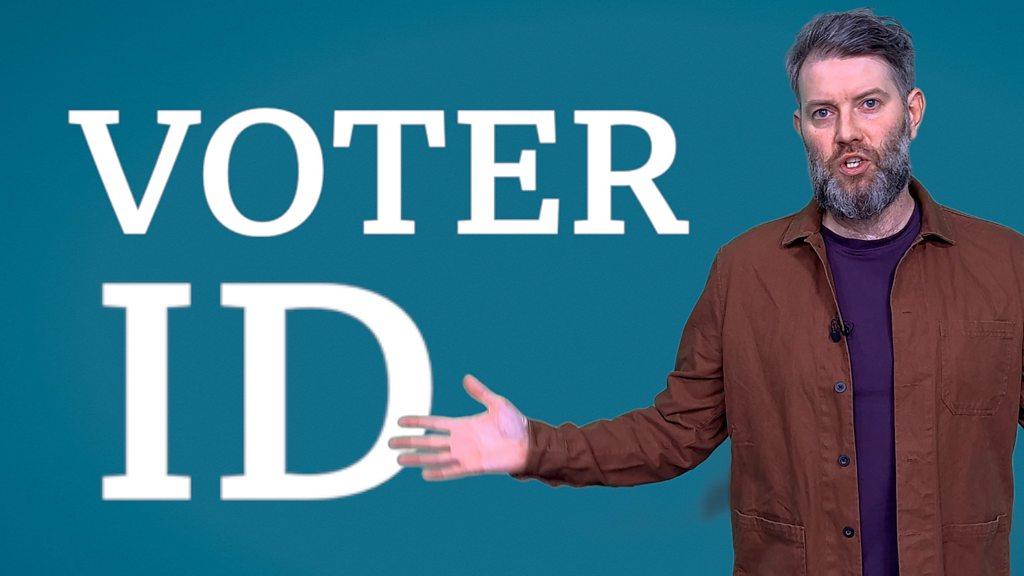Voter ID: Campaigners worry Welsh voters will be turned away
- Published
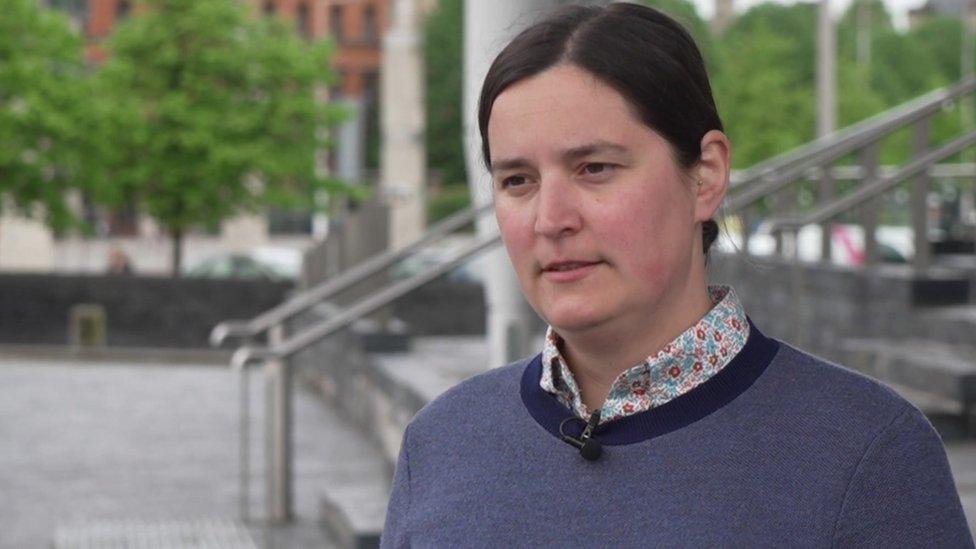
Dr Nia Thomas said she had heard of police and NHS staff being turned away for using their work ID
People in Wales will be turned away at polling stations under new voter ID laws, campaigners claim.
Those voting in May's local elections in England needed to show ID for the first time, which led to some being unable to vote.
People in Wales will also have to show photo ID to vote in future general elections, but not in Senedd or Welsh local elections.
The UK government said the new ID rules will prevent voter fraud.
Dr Nia Thomas, of the Electoral Reform Society Wales, said she is concerned people in Wales will be turned away from polling stations after the "worrying picture" seen in England.
"The last time this election was held in 2019, 58 million ballots were cast, (and) there was one conviction for impersonation," she said.
"We saw in just Maidstone, in one council area last Thursday, (that) over 20 times that number were turned away for not having the right ID."
Dr Thomas said she had heard stories of people turned away for using legitimate photo IDs that are not accepted at polling stations, such as NHS staff ID cards or police officer warrant cards.
Tv presenter and wheelchair user Emily-Nicole Roberts said it was "scary" that the new legislation may make it difficult for everyone that wants to vote to do so.
"It's going to stop people from having their say, from having their voice and they're going to feel like something's been taken away from them," she added.
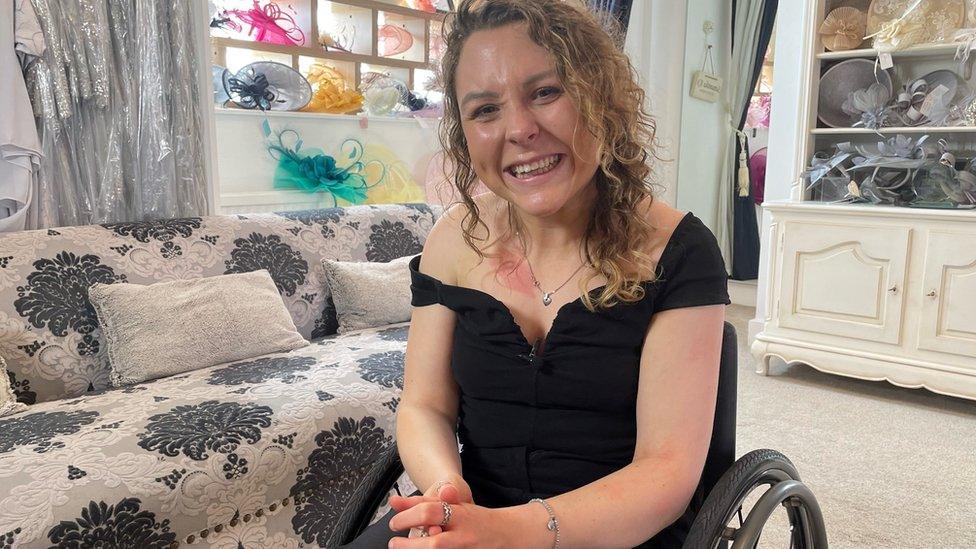
Emily-Nicole Roberts said that any additional obstacles when you are disabled could mean that some people may decide not to vote
Orla Tarn, NUS Wales president, expressed concerned that the new rules could marginalise those who are already the least likely to vote.
They said transgender, non-binary and gender non-conforming students are less likely to have ID that has their current name, gender or even likeness.
"They might be turned away, even with the right ID, because it doesn't match their current presentation," they said.

What type of ID do I need to vote?
In Wales the rules will apply to parliamentary elections and police and crime commissioner elections.
Valid ID includes:
Passports
Driving licences
Older or disabled persons' bus passes
Oyster 60+ cards
Out-of-date ID is permitted as long as the person looks the same.
Those who do not have any of these documents can apply for a Voter Authority Certificate in advance, or they can register to vote by post.

But Sian Jones, a former UK government adviser, said the move was important to "protect the integrity of our electoral system".
"I had to show ID when I went to the rubbish dump the other day," she said.
"It's fairly commonplace now to have to show ID for fairly normal situations that we encounter in our everyday lives."
If you want to vote in this year's local elections, you'll need to know this.
"It's not really surprising that for something as important at voting the government wants to protect the integrity of the electoral system and to safeguard against the possibility of fraud," she added.
'Deliberate voter suppression'
On Tuesday, First Minister Mark Drakeford told MSs that the new ID rule was "part of a deliberate voter suppression agenda" by the UK government.
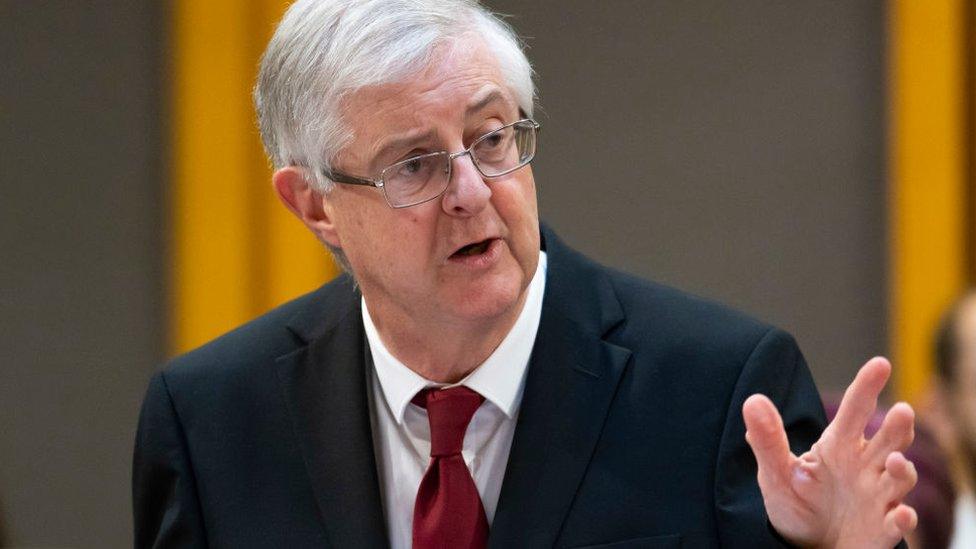
Mark Drakeford has given "categorical assurance" that voter ID will not used in Welsh elections
Speaking at First Minister's Questions, he said: "The way they think they can win elections is to learn the lessons from the far right in the United States."
He added: "That is to make it more difficult for people who might not support them to turn up and cast their vote."
The requirement was introduced as part of the Elections Act 2022, and requires voters in England, Wales and Scotland to provide photo ID before voting. It has been in place in Northern Ireland since 2007.
A UK government spokesperson said: "It's vital we keep our democracy secure, prevent the potential for voter fraud, and bring the rest of the UK in line with Northern Ireland which has had photo identification to vote in elections since 2003."
Related topics
- Published5 May 2023
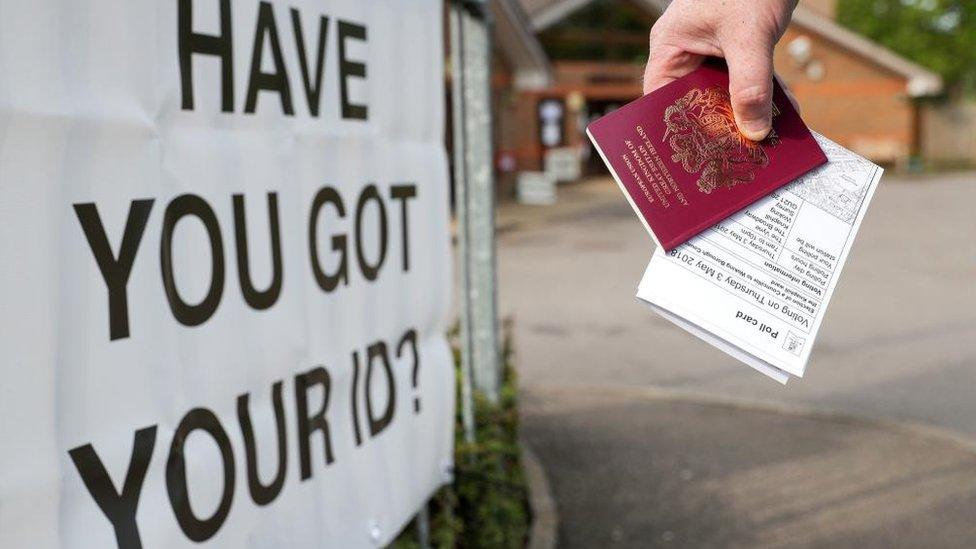
- Published25 April 2023
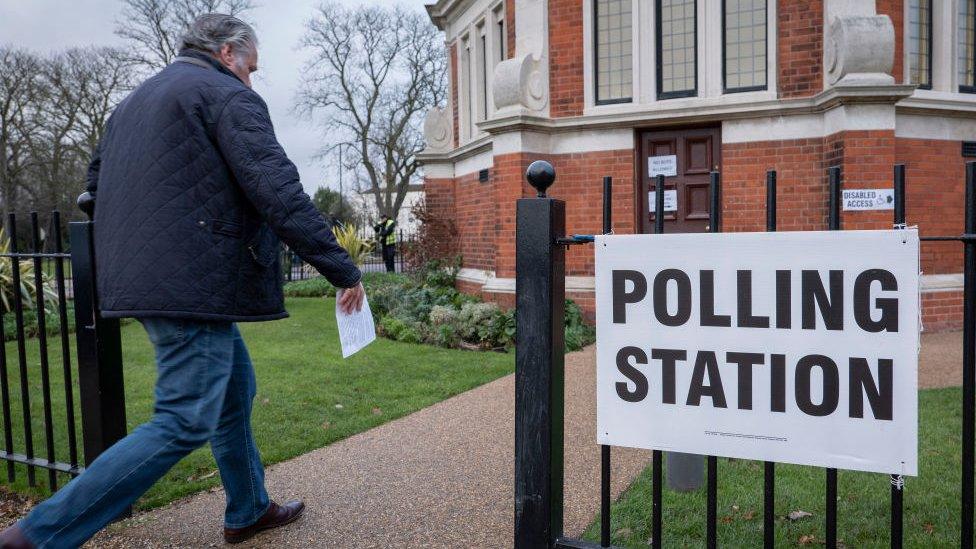
- Published5 May 2023
- Published24 April 2023
